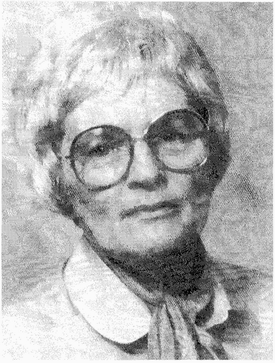Related Research Articles

Developmental psychology is the scientific study of how and why humans grow,change,and adapt across the course of their lives. Originally concerned with infants and children,the field has expanded to include adolescence,adult development,aging,and the entire lifespan. Developmental psychologists aim to explain how thinking,feeling,and behaviors change throughout life. This field examines change across three major dimensions,which are physical development,cognitive development,and social emotional development. Within these three dimensions are a broad range of topics including motor skills,executive functions,moral understanding,language acquisition,social change,personality,emotional development,self-concept,and identity formation.
Object permanence is the understanding that whether an object can be sensed has no effect on whether it continues to exist. This is a fundamental concept studied in the field of developmental psychology,the subfield of psychology that addresses the development of young children's social and mental capacities. There is not yet scientific consensus on when the understanding of object permanence emerges in human development.
Linda B. Smith is an American developmental psychologist internationally recognized for her theoretical and empirical contributions to developmental psychology and cognitive science,proposing,through theoretical and empirical studies,a new way of understanding developmental processes. Smith's works are groundbreaking and illuminating for the field of perception,action,language,and categorization,showing the unique flexibility found in human behavior. She has shown how perception and action are ways of obtaining knowledge for cognitive development and word learning.
Mary Dinsmore Ainsworth was an American-Canadian developmental psychologist known for her work in the development of the attachment theory. She designed the strange situation procedure to observe early emotional attachment between a child and their primary caregiver.
Susan E. Carey is an American psychologist who is a professor of psychology at Harvard University. She studies language acquisition,children's development of concepts,conceptual changes over time,and the importance of executive functions. She has conducted experiments on infants,toddlers,adults,and non-human primates. Her books include Conceptual Change in Childhood (1985) and The Origin of Concepts (2009).

Nora S. Newcombe is the Laura H. Carnell Professor of Psychology and the James H. Glackin Distinguished Faculty Fellow at Temple University. She is a Canadian-American researcher in cognitive development,cognitive psychology and cognitive science,and expert on the development of spatial thinking and reasoning and episodic memory. She was the principal investigator of the Spatial Intelligence and Learning Center (2006-2018),one of six Science of Learning Centers funded by the National Science Foundation.

Susan Goldin-Meadow is the Beardsley Ruml Distinguished Service Professor in the Departments of Psychology,Comparative Human Development,the college,and the Committee on Education at the University of Chicago. She is the principal investigator of a 10-year program project grant,funded by the National Institute of Child Health and Human Development,designed to explore the impact of environmental and biological variation on language growth. She is also a co-PI of the Spatial Intelligence and Learning Center (SILC),one of six Science of Learning Centers funded by the National Science Foundation to explore learning in an interdisciplinary framework with an eye toward theory and application. She is the founding editor of Language Learning and Development,the official journal of the Society for Language Development. She was President of the International Society for Gesture Studies from 2007–2012.
Michael E. Lamb is a professor and former Head of the then Department of Social and Developmental Psychology at the University of Cambridge,known for his influential work in developmental psychology,child and family policy,social welfare,and law. His work has focused on divorce,child custody,child maltreatment,child testimony,and the effects of childcare on children's social and emotional development. His work in family relationships has focused on the role of both mothers and fathers and the importance of their relationships with children. Lamb's expertise has influenced legal decisions addressing same-sex parenting,advocating for fostering and adoption by adults regardless of their marital status or sexual orientations. Lamb has published approximately 700 articles,many about child adjustment,currently edits the APA journal Psychology,Public Policy,and Law,and serves on the editorial boards on several academic journals.

Karen Wynn is an artist and a Canadian and American Yale University Professor Emerita of psychology and cognitive science. She was born in Austin,Texas,and grew up on the Canadian prairies in Regina,Saskatchewan. Her research explores the cognitive capacities of infants and young children. She directed for over 3 decades the Infant Cognition Laboratory,first in the Psychology Department at the University of Arizona,and then in the Psychology Department at Yale University.
April A. Benasich is an American neuroscientist. She is the Elizabeth H. Solomon Professor of Developmental Cognitive Neuroscience,director of the Infancy Studies Laboratory at the Center for Molecular and Behavioral Neuroscience,and director of the Carter Center for Neurocognitive Research and Professor of Neuroscience at Rutgers University. She is also a principal investigator within the National Science Foundation-funded Temporal Dynamics of Learning Center headquartered at the University of California,San Diego’s Institute for Neural Computation.
Mary Klevjord Rothbart is professor emerita of psychology at the University of Oregon. She is known for her research in the fields of temperament and social development,emotional development,and development of attention. She was a co-founder of Birth to Three,a parent support and education program. She has written over 159 articles related to educational psychology,developmental psychology,developmental cognitive neuroscience and biological psychology. Rothbart has also authored and co-authored many books,including Becoming Who We Are,for which she received the Eleanor Maccoby Book Award from the American Psychological Association. Two other popular volumes by Rothbart are Temperament,a Handbook of Child Psychology,and Attention in Early Development:Themes and Variations.

Karen E. Adolph is a psychologist and professor known for her research in the field of infant motor development. She is the 2017 recipient of the Kurt-Koffka medal from the University of Giessen. Previous honors include the 1999 APA Boyd McCandless Award and 2002 American Psychological Foundation Robert L. Fantz Memorial Award. She has served as the President of the International Congress on Infant Studies. Adolph and her colleagues developed computerized video coding software,called Datavyu,and state-of-the-art recording technology to observe and code behavior. A related project,Databrary,provides a repository for video recordings of behavior and encourages open data sharing across research labs. Adolph is a recipient of a MERIT Award from the National Institutes of Child Health and Human Development in support of her innovative research.
Dishabituation is a form of recovered or restored behavioral response wherein the reaction towards a known stimulus is enhanced,as opposed to habituation. Initially,it was proposed as an explanation to increased response for a habituated behavior by introducing an external stimulus;however,upon further analysis,some have suggested that a proper analysis of dishabituation should be taken into consideration only when the response is increased by implying the original stimulus.

Frances K. Graham was an American psychologist and Professor of Psychology at the University of Delaware,where she was elected to the National Academy of Sciences in 1988.

Patricia J. Bauer is Asa Griggs Candler Professor of Psychology at Emory University. She is known for her research in the field of cognitive development,with a specific focus on how children develop their earliest memories and how their memory is influenced by parents,peers,and the environment around them. Her research has explored the phenomenon of childhood amnesia and how social,cognitive,and neural changes relate to the development of autobiographical memory.
Deborah M. Capaldi is a developmental psychologist known for her research on at-risk male youth and the intergenerational transmission of substance use,antisocial behavior,intimate partner violence,and child abuse. She is a senior scientist at the Oregon Social Learning Center. Her current projects focus on child exposure to family violence and parenting practices of at-risk parents.
Frances Degen Horowitz was an American developmental psychologist who served as President of the Graduate Center,City University of New York from 1991 to 2005. She was instrumental in raising the stature of the institution and moving it to its current location in the B. Altman and Company Building on Fifth Avenue of New York City.
Grazyna Kochanska is a Polish-American developmental psychologist known for her research on parent-child relationships,developmental psychopathology,child temperament and its role in social development. She is the Stuit Professor of Developmental Psychology at the University of Iowa.
Carolyn Zahn-Waxler is an American developmental psychologist known for studying morality over the life span,social emotions,and empathy in childhood. She holds the position of Honorary Fellow at the Center for Healthy Minds at the University of Wisconsin–Madison.
Lorraine E. Bahrick is a developmental psychologist known for her research on intermodal perception and effects of inter-sensory redundancy on learning in infancy and early childhood. Her work in these areas involves investigating how the integration of information from various sensory modalities,such as vision,hearing,and touch,contributes to the cognitive,perceptual,and social development of infants and children. She also explores how the redundancy or overlap of sensory information,influences these developmental processes. She is Distinguished University Professor of Psychology at Florida International University and the Director of Infant Development Lab.
References
- 1 2 "A psychologist and two departments receive 2011 APA Distinguished Service Awards". www.apa.org. Retrieved 2018-11-28.
- ↑ "SRCD Senior Distinguished Contributions Awards History". Society for Research in Child Development. Retrieved 2018-10-25.
- ↑ "Rachel Keen wins Distinguished Contribution Award from the International Congress on Infant Studies | Department of Psychology". psychology.as.virginia.edu. Retrieved 2018-11-28.
- 1 2 "Rachel Keen, PhD – FABBS". fabbs.org. Retrieved 2018-10-25.
- ↑ "Award for Distinguished Service to Psychological Science". www.apa.org. Retrieved 2018-11-28.
- ↑ "Neurotree - Rachel Keen (Clifton) Family Tree". neurotree.org. Retrieved 2018-11-27.
- ↑ Keen, Rachel (1964). "Effects of auditory stimuli on sucking behavior in the human neonate". Journal of Experimental Child Psychology. 1 (4): 348–354. doi:10.1016/0022-0965(64)90027-x. ISSN 0022-0965.
- ↑ "Rachel Keen, PhD – FABBS". fabbs.org. Retrieved 2018-11-19.
- ↑ Graham, Frances K.; Clifton, Rachel K. (1966). "Heart-rate change as a component of the orienting response". Psychological Bulletin. 65 (5): 305–320. doi:10.1037/h0023258. ISSN 1939-1455. PMID 5325894.
- 1 2 Keen, Rachel E.; Chase, Helen H.; Graham, Frances K. (1965). "Twenty-four hour retention by neonates of an habituated heart rate response". Psychonomic Science. 2 (1–12): 265–266. doi: 10.3758/bf03343442 . ISSN 0033-3131.
- ↑ Swain, Irina U.; Zelazo, Philip R.; Clifton, Rachel K. (1993). "Newborn infants' memory for speech sounds retained over 24 hours". Developmental Psychology. 29 (2): 312–323. doi:10.1037/0012-1649.29.2.312. ISSN 0012-1649.
- ↑ Goubet, N., Clifton, R. K., & Shah, B. (2001). "Learning about pain in preterm newborns". Journal of Developmental & Behavioral Pediatrics. 22 (6): 418–424. doi:10.1097/00004703-200112000-00009. PMID 11773806. S2CID 24237638.
{{cite journal}}: CS1 maint: multiple names: authors list (link) - ↑ Shinn-Cunningham, Barbara (2013), "Auditory Precedence Effect", Encyclopedia of Computational Neuroscience, Springer New York, pp. 1–3, doi:10.1007/978-1-4614-7320-6_101-5, ISBN 9781461473206
- ↑ Clifton, Rachel Keen (1985), "The Precedence Effect", Auditory Development in Infancy, Springer US, pp. 85–99, doi:10.1007/978-1-4757-9340-6_4, ISBN 9781475793420
- ↑ Clifton, Rachel K.; Rochat, Philippe; Litovsky, Ruth Y.; Perris, Eve E. (1991). "Object representation guides infants' reaching in the dark". Journal of Experimental Psychology: Human Perception and Performance. 17 (2): 323–329. doi:10.1037/0096-1523.17.2.323. ISSN 1939-1277. PMID 1830078. S2CID 17916402.
- ↑ Robin, Daniel J.; Berthier, Neil E.; Clifton, Rachel K. (1996). "Infants' predictive reaching for moving objects in the dark". Developmental Psychology. 32 (5): 824–835. doi:10.1037/0012-1649.32.5.824. ISSN 0012-1649.
- ↑ McCarty, Michael E.; Clifton, Rachel K.; Collard, Roberta R. (2001-04-01). "The Beginnings of Tool Use by Infants and Toddlers". Infancy. 2 (2): 233–256. doi:10.1207/s15327078in0202_8. ISSN 1525-0008.
- ↑ Palmquist, Carolyn M.; Keen, Rachel; Jaswal, Vikram K. (2017-09-11). "Visualization instructions enhance preschoolers' spatial problem-solving". British Journal of Developmental Psychology. 36 (1): 37–46. doi:10.1111/bjdp.12205. ISSN 0261-510X. PMID 28892236. S2CID 46788588.